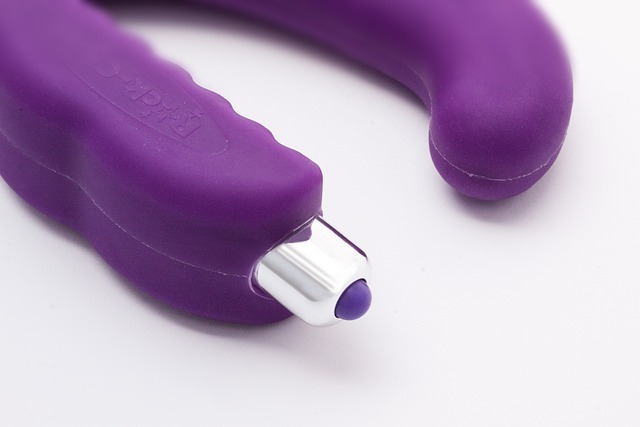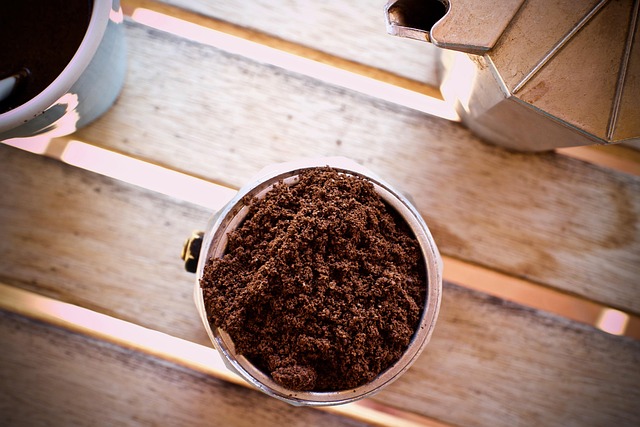Collagen stimulation techniques offer revolutionary anti-aging solutions by encouraging natural collagen production. Using advanced methods like peptides, laser treatments, and microneedling, these approaches improve skin texture, reduce wrinkles, and enhance overall skin health. Beyond skincare, collagen is crucial for maintaining bones, muscles, and joints, making stimulation beneficial for athletes and overall wellness. Topical serums and creams, as well as in-clinic procedures, provide effective collagen stimulation with visible results. However, safety considerations are essential, especially for individuals with certain medical conditions. Future developments include non-invasive technologies and personalized strategies, promising more effective collagen enhancement for diverse skincare needs.
“Unveil the secrets of youthful radiance with our in-depth exploration of Collagen Stimulation. This advanced skincare technique has taken the beauty industry by storm, promising not just smoother skin but profound overall health benefits. From understanding collagen’s role as the ‘building block of youth’ to uncovering innovative stimulation methods and top-tier treatments, this article guides you through every aspect of collagen stimulation. Discover the science behind its effectiveness, potential risks, and future trends shaping the skincare landscape.”
Understanding Collagen: The Building Block of Youthful Skin

Collagen, often referred to as the “building block of youthful skin,” is a protein that plays a pivotal role in maintaining skin elasticity and a smooth appearance. It’s naturally produced by our bodies, but its production declines with age, leading to wrinkles, saggy skin, and reduced texture quality. Understanding collagen’s fundamental structure and function is essential when exploring advanced collagen stimulation techniques, which aim to rejuvenate the skin and restore its youthful glow.
In the context of skincare, collagen stimulation involves therapeutic approaches designed to encourage the body to produce more collagen. This can be achieved through various methods, including topical applications, medical treatments, and lifestyle adjustments. By stimulating collagen production, these strategies help improve skin texture, reduce fine lines, and enhance overall skin health, thereby promoting a youthful and radiant complexion.
Unlocking the Potential: Advanced Collagen Stimulation Techniques

In the realm of skincare, unlocking the potential of collagen stimulation has been a game-changer. Advanced techniques have revolutionized how we approach anti-aging and skin rejuvenation, fostering a vibrant and youthful appearance. Collagen, often referred to as the “soul” of our skin, plays a crucial role in maintaining elasticity and a supple texture. By employing innovative methods, these advanced collagen stimulation techniques aim to enhance natural production and boost overall skin health.
Through meticulous research, professionals have uncovered various strategies to unlock collagen’s hidden potential. One such method involves using specific peptides that signal fibroblasts—the cells responsible for collagen synthesis—to increase collagen production. Additionally, certain laser technologies and micro-needling procedures create controlled injuries, stimulating the body’s natural healing process and encouraging collagen formation. These cutting-edge approaches not only offer visible improvements but also provide long-lasting results, ensuring folks can embrace a radiant and healthy complexion.
How Does Collagen Stimulation Work? A Scientific Perspective

Collagen stimulation is a process that encourages the body’s natural production of collagen, a protein essential for skin elasticity and overall tissue health. This advanced technique leverages the body’s inherent ability to regenerate and repair itself by stimulating fibroblasts—cells responsible for synthesizing collagen—through various means. Scientifically, this involves either using external stimuli like specific peptides or enzymes that signal fibroblasts to produce more collagen, or creating an environment that mimics the natural conditions under which collagen production occurs, such as controlled temperature, pH levels, and nutrient availability.
At the cellular level, collagen stimulation leads to a cascade of events. When fibroblasts receive the appropriate signals, they begin to express genes related to collagen synthesis. This results in an increase in the production of procollagen, which is then processed into mature collagen fibers. These new collagen fibers strengthen and stabilize the extracellular matrix, improving skin structure and texture, reducing the appearance of fine lines and wrinkles, and promoting overall skin health. Thus, advanced collagen stimulation offers a science-backed approach to enhancing natural collagen production for visible and sustainable skincare benefits.
Benefits Beyond Skin Deep: Collagen's Impact on Overall Health

Collagen goes beyond mere skin health, playing a pivotal role in maintaining overall wellness. Often referred to as the ‘building block’ of our bodies, collagen is essential for supporting and strengthening various tissues, including bones, muscles, and tendons. It contributes significantly to joint health by enhancing flexibility and reducing inflammation, making it particularly beneficial for athletes and individuals with active lifestyles.
Advanced collagen stimulation techniques further amplify these advantages. By encouraging the body’s natural production of collagen, these methods can slow down the aging process, reduce visible signs of aging on the skin, and foster a sense of vitality throughout the entire body. This holistic approach to health recognizes that collagen’s impact extends far beyond the surface, offering a more comprehensive strategy for well-being.
Exploring Topical Treatments: Serums, Creams, and Their Effectiveness

In the realm of collagen stimulation, topical treatments like serums and creams have emerged as powerful tools to enhance skin health and appearance. These formulations are designed to penetrate the skin’s surface, delivering active ingredients that boost collagen production and improve overall skin texture. Serums, with their high concentration of beneficial compounds, offer a more targeted approach, addressing specific concerns such as fine lines and wrinkles. On the other hand, creams provide deeper hydration and nourishment, making them ideal for maintaining skin elasticity and reducing the appearance of age-related damage.
The effectiveness of these topical treatments lies in their ability to stimulate fibroblasts, the cells responsible for synthesizing collagen. Ingredients like peptides, vitamin C, retinol, and hyaluronic acid play pivotal roles in this process. Peptides, for instance, mimic natural signaling molecules, encouraging fibroblasts to produce more collagen. Vitamin C, a powerful antioxidant, protects collagen from damage caused by free radicals. Retinol, a derivative of vitamin A, speeds up cell turnover and promotes collagen synthesis. Additionally, hyaluronic acid’s exceptional hydrating properties ensure skin remains plump and supple, enhancing the overall impact of collagen stimulation.
In-Clinic Procedures: Microneedling, Laser Therapy, and More

In-clinic procedures play a significant role in advanced collagen stimulation, offering targeted and effective treatments for various skin concerns. Microneedling, for instance, involves using fine needles to create tiny punctures in the skin, which triggers the body’s natural healing response and stimulates collagen production. This procedure not only improves skin texture but also enhances the absorption of topical products.
Laser therapy is another powerful tool in the arsenal of collagen stimulation. Different laser wavelengths target specific skin issues, from reducing fine lines and wrinkles to improving skin tone and texture. By breaking up protein bonds responsible for damaged skin, lasers stimulate collagen and elastin production, resulting in a more youthful and radiant appearance. These advanced techniques provide patients with visible results, making them popular choices for those seeking professional skincare solutions.
Safety and Considerations: Who Should Avoid Advanced Collagen Stimulation?

Advanced collagen stimulation, while promising, isn’t suitable for everyone. Safety should always be a top priority when considering any cosmetic procedure or treatment. It’s crucial to understand that collagen stimulation involves manipulating the skin’s natural production of collagen, which is a protein essential for skin elasticity and firmness. As such, certain individuals may face risks or complications.
Those with active skin conditions like eczema, psoriasis, or rosacea should avoid advanced collagen stimulation until their skin is clear and stable. Similarly, people with certain medical conditions such as bleeding disorders, those taking blood-thinning medications, or individuals with a history of keloid scar formation should consult their healthcare provider before proceeding. Additionally, pregnant or breastfeeding women are generally advised against undergoing this procedure due to the potential risks associated with their unique physiological states.
The Future of Collagen Enhancement: Emerging Trends and Technologies

The future of collagen enhancement is brimming with exciting developments as researchers and dermatologists explore innovative methods to boost collagen production. One prominent trend is the integration of advanced technologies, such as light therapy and targeted topicals, to stimulate collagen regeneration. Light-based therapies, for instance, utilize specific wavelengths to penetrate the skin, stimulating fibroblasts—the cells responsible for collagen synthesis. This approach offers a non-invasive way to enhance skin elasticity and reduce signs of aging.
Additionally, emerging technologies like precision delivery systems and biomimetic scaffolds are gaining traction. These innovations aim to deliver growth factors and stimulators directly to the skin’s depth, mimicking natural collagen production processes. Biomimetic scaffolds, in particular, provide a 3D structure that supports cell adhesion and proliferation, potentially revolutionizing collagen-boosting treatments. As research progresses, we can anticipate more effective and personalized strategies for collagen stimulation, catering to diverse skincare needs.
